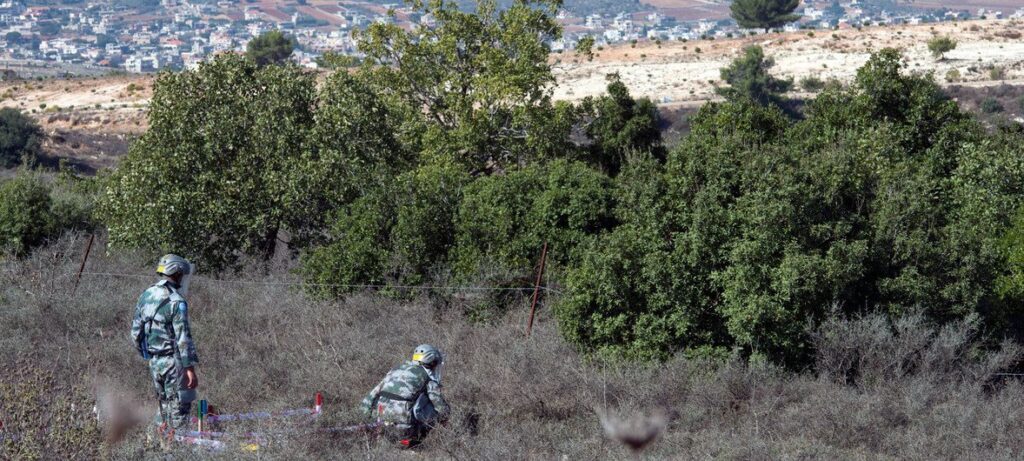The latest escalation, which took place on Thursday, “increases the risk of full-scale war,” the Office of the Spokesperson for the Secretary-General said in a statement. Note to Correspondents.
“Escalation can and must be avoided. We reiterate that the danger of a miscalculation leading to a sudden and wider conflagration is real,” it added, stressing that a political and diplomatic solution is the only viable way forward.
It was further noted that UN Special Coordinator for Lebanon (UNSCOL), Jeanine Hennis-Plasschaert, met with officials from the country, including Parliament Speaker Nabih Berri and interim Prime Minister Najib Mikati, on Thursday, stressing the need for de-escalation along the Blue Line.
“We join the calls of UNSCOL and the UN Interim Force in Lebanon (UNIT) urge the parties to immediately return to a cessation of hostilities and recommit to the full implementation of Security Councilresolution 1701“, the letter said.

© UNRWA
People in Gaza are living in increasingly unsanitary conditions.
Nine out of ten displaced people in Gaza
Meanwhile, nine out of 10 people in Gaza are reportedly internally displaced, according to the UN Office for the Coordination of Humanitarian Affairs (OCHA) in the Occupied Palestinian Territory (OPT).
In a humanitarian bulletin on fridayOCHA cited estimates showing that the number of displaced people within Gaza has risen from 1.7 to 1.9 million people.
“The mass displacement is mainly the result of evacuation orders issued by the Israeli military, the extensive destruction of both private and public infrastructure, limited access to essential services and the continued fear of continued hostilities,” OCHA said.
Israeli air, land and sea bombardments continue to be reported across much of the Gaza Strip, resulting in increased civilian casualties, displacement and destruction of homes and other civilian infrastructure.
Large hospital ’empty’
OCHA also reported that on July 1, the Israeli military issued the second largest evacuation order since October 2023, calling on residents of 71 residential blocks in eastern Khan Younis and Rafah to immediately evacuate westward to what the military defines as a “humanitarian zone” in Al Mawasi.
Although authorities made it clear the next day that the measure did not apply to the European Gaza Hospital (EGH), most medical staff and patients there – including those lying in beds with IVs – quickly fled for fear that the hospital would no longer function, based on previous experiences at hospitals located in areas designated for evacuation.
That evening, EGH was completely empty and all 320 medical staff and patients had left, OCHA said.
Most patients were referred to the Nasser Medical Complex, which had reached full capacity with over 350 patients admitted, amid severe shortages of medicines and surgical supplies.
Serious fuel shortage
In addition, the lack of fuel makes it difficult to provide health care.
“There is a risk of further disruption to health services in Gaza due to a severe fuel shortage,” Tedros Adhanom Ghebreyesus, director-general of the UN World Health Organization, warned in a post on X, formerly Twitter.
“Yesterday, only 90,000 liters of fuel entered Gaza. The health sector alone needs 80,000 liters daily, which is why the UN, including WHO and partners to make impossible choices,” he added.
The lack of fuel is also affecting water and sanitation infrastructure, worsening living conditions and hampering relief efforts in the war-torn enclave.







